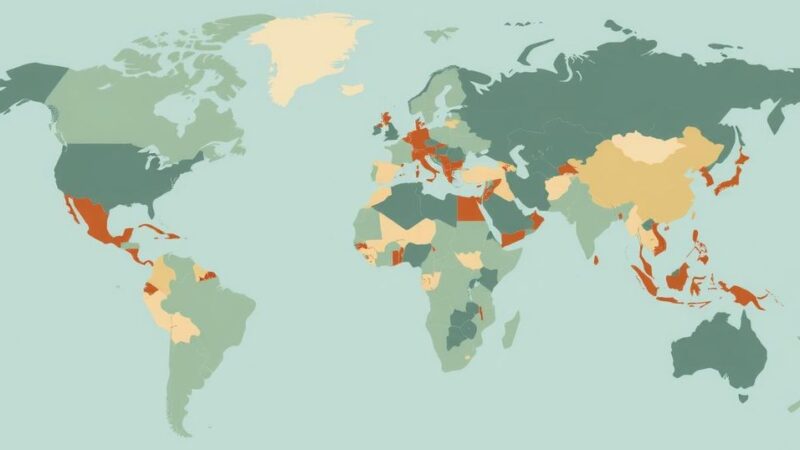Egypt is apprehensive about the Islamist takeover in Syria, reevaluating its ties following President Sisi’s rise after the ousting of the Muslim Brotherhood. The government has adopted a cautious approach, wary of the potential for Islamist influence to incite unrest domestically. Notably, Egypt remains tactically engaged, seeking to stabilize the region while safeguarding its interests.
The recent Islamist rise to power in Syria has prompted a sense of unease in Egypt, compelling the government to cautiously reassess its diplomatic relations. This comes after President Abdel Fattah al-Sisi’s ascent to power, which resulted from the ousting of the Muslim Brotherhood. Egypt had openly supported Syrian President Bashar al-Assad until the very end, yet now expresses concern regarding the potential ramifications of Islamist dominance in Syria. Commentators like Merissa Khurma from the Wilson Center highlight that Egypt’s historical ties to the Brotherhood amplify these apprehensions.
While several Arab nations have quickly sought to engage with Syria’s new leadership, Egypt has pursued a more measured approach. Three days before Assad’s fall, Foreign Minister Badr Abdelatty articulated Egypt’s backing for the Syrian regime. However, it took three weeks for him to contact his successor, emphasizing the need for an inclusive governance structure in the country. The cooperation was confirmed by Syrian Foreign Minister Asaad al-Shibani, who stated that both nations share the responsibility of achieving stability and prosperity in the region.
In light of the transition, Sisi’s reactions have been carefully noncommittal as he acknowledged, “Those who make the decisions in Syria are the people of the country. They can either destroy it or rebuild it.” Egypt’s broader response has been significantly cautious, especially given the presence of non-state and Islamist actors posing security threats. Domestically, the government has temporarily silenced any pro-Assad sentiments, detaining individuals celebrating his removal and tightening visa processes for Syrians seeking entry.
The implications of Assad’s ousting extend beyond borders, shifting the geopolitical balance in the region, notably decreasing Iranian influence while bolstering Turkey’s position. The longstanding rivalry between Egypt and Turkey complicates Cairo’s reception of this new dynamic, further exacerbated by Turkish President Recep Tayyip Erdoğan’s support of the Syrian opposition following Sisi’s rise. Experts contend that Egypt perceives this win for Turkey, a nation aligned with Islamist ideology, as a strategic threat.
Despite initial hesitation, Gulf states have initiated contact with Syria’s new regime, prompting Egypt to reconsider its isolation in the diplomatic arena. Observers assert that any support from Egypt will be conditional upon seeking a governance model that includes disparate Syrian groups to mitigate unrest, particularly within minority populations. Ultimately, Cairo’s strategic calculations remain focused on national security and regional interests, underscoring the precarious balance within the Middle Eastern political landscape.
The article addresses the geopolitical implications of Syria’s recent Islamist leadership under Hayat Tahrir al-Sham (HTS) and the resulting apprehension in Egypt, a nation with a tumultuous history involving the Muslim Brotherhood. President Sisi, who gained power by ousting the Brotherhood, now faces a dilemma regarding how to engage with a new Syrian regime that could destabilize Egypt’s security and influence in the region. Sisi’s cautious stance reflects not only the fear of domestic unrest inspired by Islamist movements but also concerns about the shifting alliances that threaten to reshape Middle Eastern politics, particularly with Turkey’s increased assertiveness.
In conclusion, Egypt’s trepidation over the rise of Islamist rule in Syria is indicative of deeper historical and political concerns relating to the Muslim Brotherhood and regional stability. While Egypt seeks to assert itself as a regional power, the dynamics are changing rapidly, and any approach towards Syria will be carefully calibrated to prevent domestic unrest and to maintain national security. As relationships evolve in the Middle East, Egypt’s strategy will be crucial in navigating the complex landscape emerging from the Syrian conflict.
Original Source: www.france24.com






